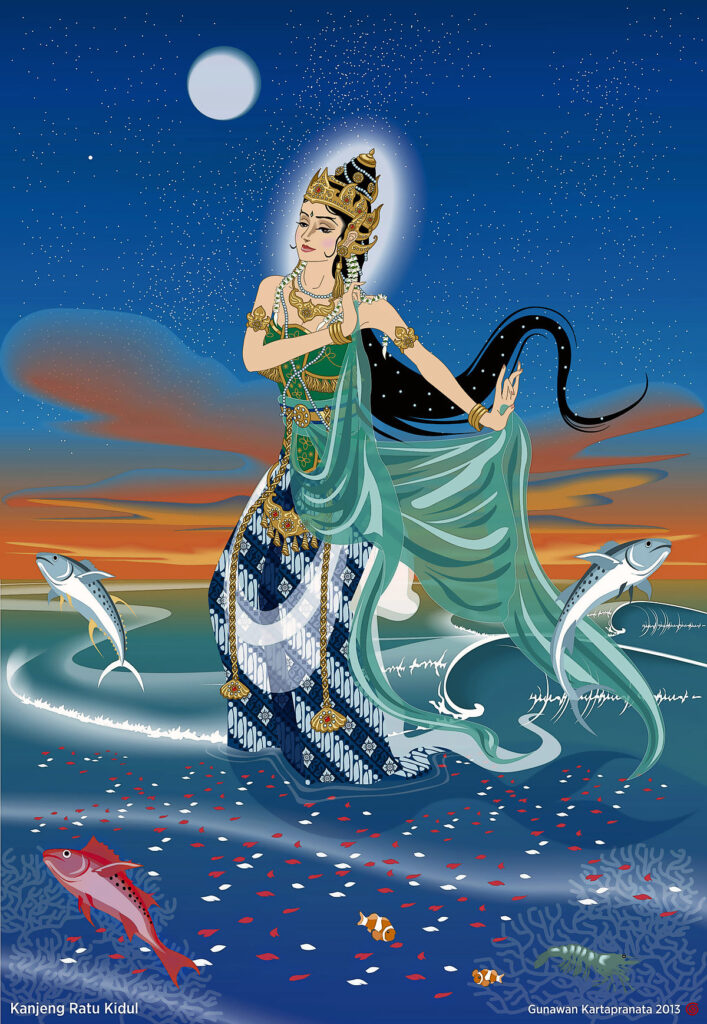CampusNet – The myth of Nyi Roro Kidul is one of the most famous legends in Javanese culture. She is depicted as the queen of the Southern Sea, possessing supernatural powers. Many believe that those who wear green near the southern coast may fall victim to her wrath. From a feminist perspective, this myth is more than just a mystical tale; it reflects how women are positioned in a patriarchal society.
Nyi Roro Kidul in Javanese Culture
In Javanese mythology, Nyi Roro Kidul is a powerful yet mysterious figure. Some versions describe her as a cursed woman, while others portray her as a princess who chose a spiritual path and gained supernatural abilities.
She is often depicted as beautiful yet fearsome. Many believe she has the power to claim human lives, particularly men who swim in the Southern Sea. This myth has become part of coastal Javanese culture, serving as a cautionary tale for those near the ocean.
Myth and Control Over Women
From a feminist perspective, the myth of Nyi Roro Kidul reflects how women are often placed in extreme categories: revered yet feared. This mirrors the patriarchal construct where powerful women are seen as dangerous and must be controlled.
The myth also illustrates how independent women are often linked to supernatural elements or curses. Throughout history, influential women have been labeled as witches, seductresses, or threats to the male-dominated order.
Nyi Roro Kidul and Women’s Independence
Conversely, Nyi Roro Kidul can be seen as a symbol of female independence. She does not conform to royal rules or marriage. Instead, she reigns over her own domain—the Southern Sea—and controls her fate.
From a feminist perspective, this defies social norms that expect women to submit to patriarchal systems. Nyi Roro Kidul represents women who govern their own lives, do not depend on men, and hold authority over their own territory.
Reinterpreting the Myth in a Modern Context
Today, the myth of Nyi Roro Kidul can be reinterpreted as a symbol of women’s struggle for freedom and equality. Instead of fearing her, she can be seen as an icon of female strength challenging societal limitations.
This myth can inspire women to take on leadership roles, advance in careers, and make independent choices. Her story teaches that women can be strong and self-sufficient, breaking free from restrictive norms.
The myth of Nyi Roro Kidul is more than a supernatural tale. It reflects the dynamics of women’s roles in Javanese culture and how myths can be used to either control or empower women. From a feminist perspective, she shows how powerful women are often seen as threats but can also serve as symbols of strength and independence.
By reinterpreting this myth today, we can draw positive values from her story, using them as inspiration for women to become more empowered and courageous in their lives.



